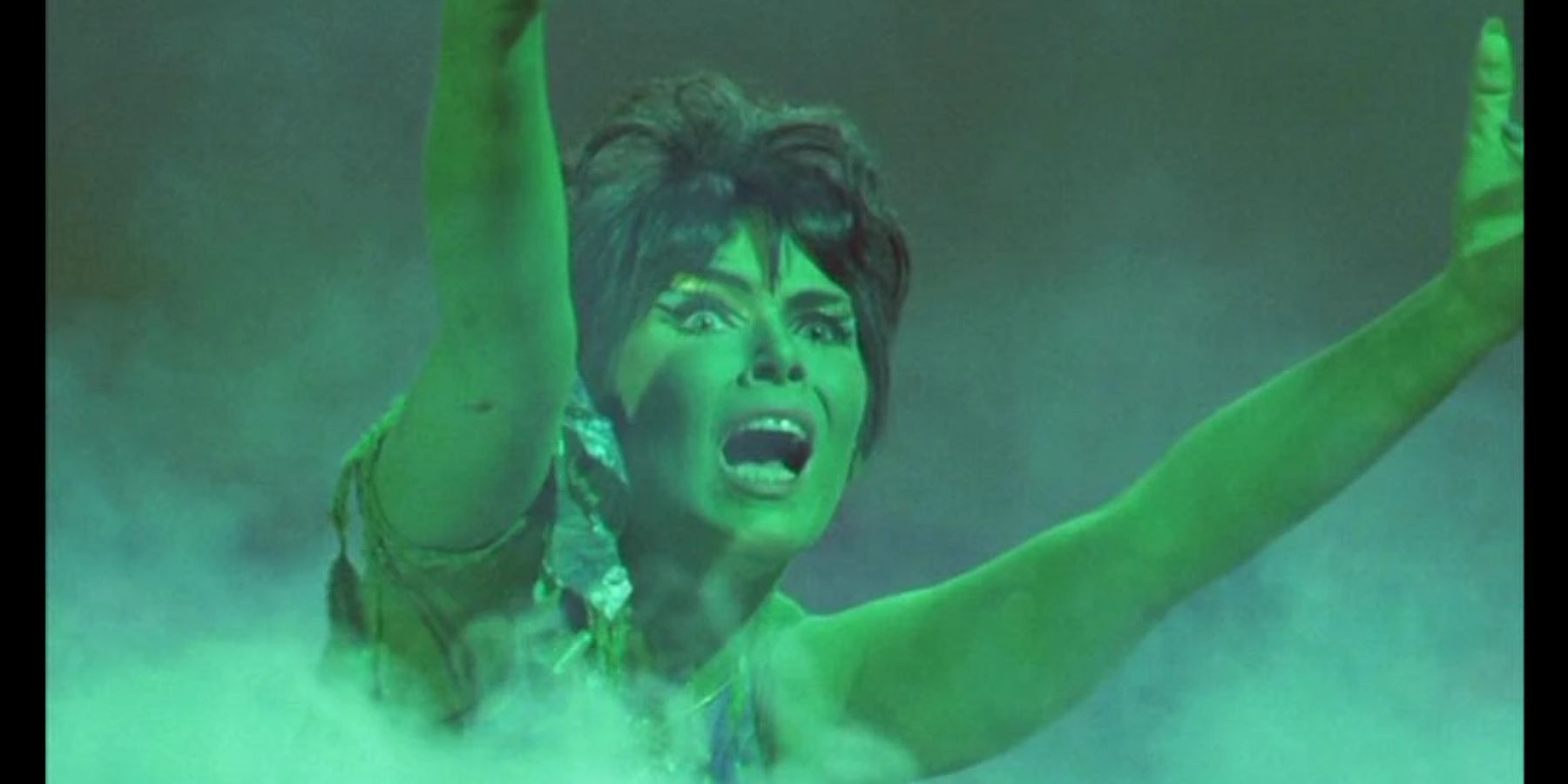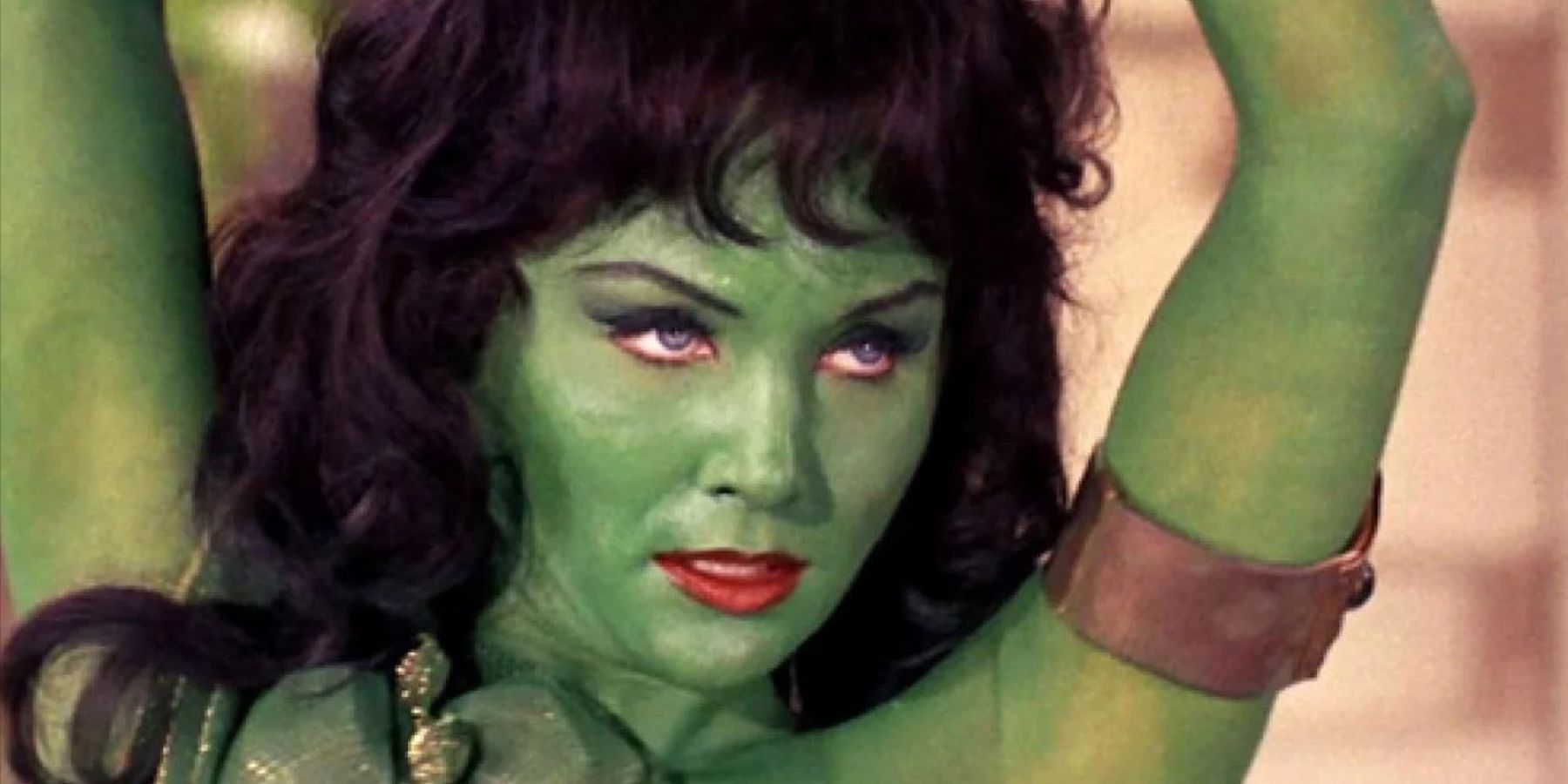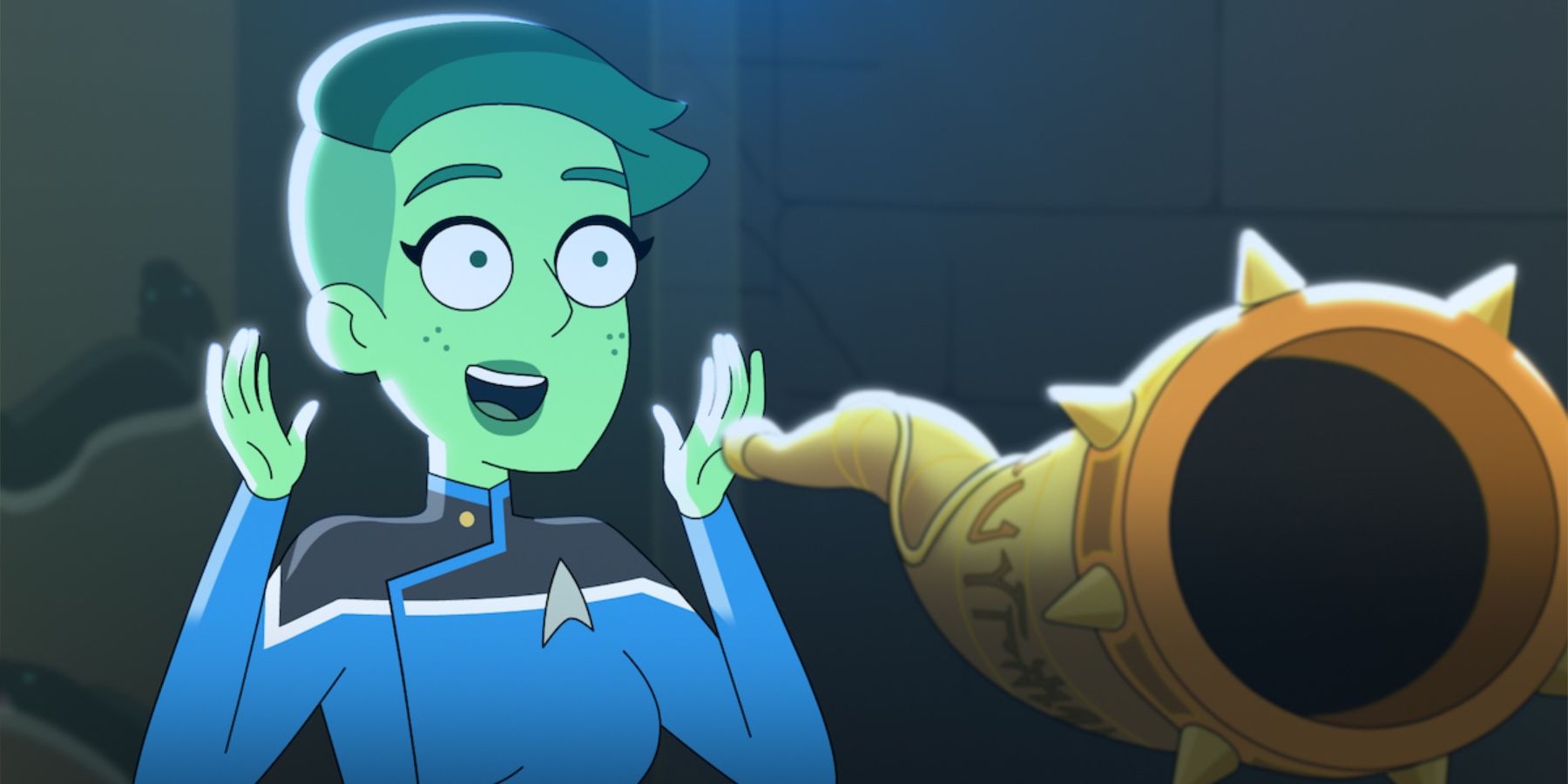Of all the amazing creations to come out of the Star Trek franchise, one of the best features is the incredibly diverse array of alien races. Each contains their own distinct cultures and civilizations, often with complex political infrastructures and social dynamics, from the warlike Klingons all the way to the surprisingly fearsome Tribbles. However, potentially one of the most iconic Original Series creations are the Orions.
These green-skinned aliens were a massive hit when the first iconic series aired. While they may have been forgotten somewhat in recent years, they made a strong comeback in the animated Lower Decks series. So who are the Orions, and what role do they play in the larger Star Trek universe?
The Orions were first introduced in The Original Series during the episode “Journey to Babel” and made quite the impact with audiences. Of course, this may have had something to do with the dated way the late 60s production chose to portray the women of this race: scantily clad green women who were known for their incredible beauty. If looks were not enough, they also released a pheromone to make them even harder to resist. They often used this advantage to persuade others to do their bidding.
At the time of their introduction, the Orions were thought to be a neutral race, with no political agenda or nefarious nature about them. However, this was soon revealed to be a clever facade, a decision by the Orions over many years to hide their true nature from the rest of the galaxy. During the 23rd century, an Orion spy pretending to be an Andorian murdered a Tellarite ambassador in cold blood, all for the purpose of preventing Coridan from forming an alliance with the Federation, a planet rich with Dilithium. The Orions had secretly been exploiting the planet for its bounteous resources. For it to be included in the conditional love of the Federation would have put an end to their nefarious dealings and oppression of the planet.
After the open murder of the ambassador, it was revealed that the Orions were a race of pirates and slavers, oppressing others for years under the orders of the criminal organization The Orion Syndicate. Up until this point, they had carefully hidden their true nature from the Federation, going as far as ordering Orion suicide alongside murder to hide what they were really doing. At this point, though, the syndicate had grown so powerful that they no longer needed to reside behind the curtain. Only a decade or so after the murder of the ambassador, they were known across the galaxy as people to be feared. They pirated across the quadrant, got involved in political conspiracy, and practiced slavery (even of their own people) and piracy.
All this history and representation on the small screen made the Orions pretty susceptible for racial stereotyping over the years (though not as bad as the Ferengi). In the fictional world, when anyone came across an Orion ship, they feared being robbed or worse. The same thing is true of audiences familiar with the race. The Orions were not all bad, however. The idea that the syndicate was the official Orion government, rather than an illegal organization that ran powerfully in the shadows, was a misconception that permeated the fiction. The Orions maintained, in pockets, peaceful relationships with outsiders. One episode of the critically misunderstood Voyager series revealed they even had an institute of Cosmology that accepted human students, so things must not have been too bad on the Orion home world.
What really helped with Orion representation was the introduction of the much-loved Lower Decks character Ensign D’Vana Tendi, an Orion Starfleet officer. Not only is she the first official, prime-universe Orion to be seen as a Starfleet officer, but she is the first to be a primary character in a series. There is an entire episode dealing with the disconnect with her own people, and the theme of people judging her blindly for simply being an Orion is present throughout much of the narrative arc.
Ensign Tendi is an odd exception to the stereotype. While her character and personality indicates a loving, caring, non-pirating anti slaver, it is revealed that she does possess the skills and training typical with those more devious of her race. Interestingly, she becomes a beacon of not judging a book by its cover, as well as fulfilling some negative stereotypes. She has a history as a pirate, but she's eager to put it behind her.
With new shows being added constantly to the franchise, it would be nice to see more inclusions of the Orion people. Their culture is an untapped goldmine of potential. Future shows could explore both the Orion Syndicate, and the misconceptions and racial stereotyping of their members.



